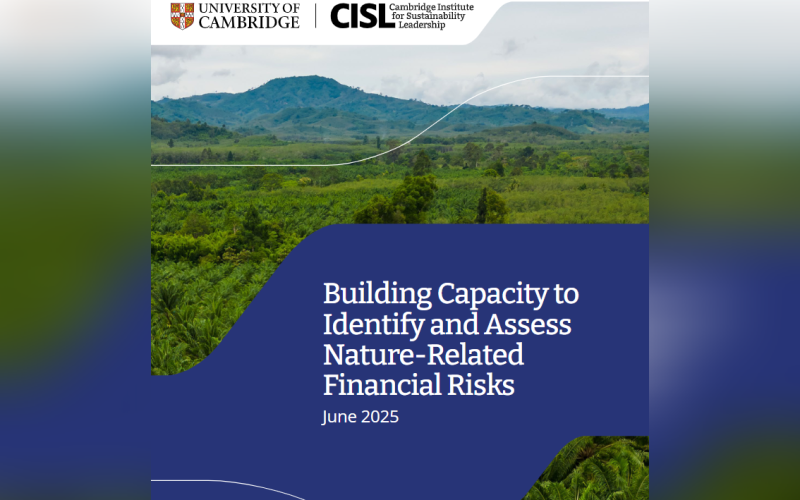In a pioneering effort to better understand the financial impacts of nature-related risks, three leading Singaporean banks, DBS, OCBC and UOB, in collaboration with the University of Cambridge Institute for Sustainability Leadership (CISL) and supported by the Monetary Authority of Singapore (MAS), have conducted a scenario analysis assessing potential credit risk impacts in the palm oil industry across Indonesia and Malaysia.
The project, part of the initiative ‘Building Capacity to Identify and Assess Nature-Related Financial Risks’, aimed to equip banks with tools to evaluate their exposure to nature-related dependencies and risks in their wholesale lending portfolios. This second-stage analysis focused specifically on hypothetical nature loss events triggered by an intensified El Niño climate phenomenon—events that could severely disrupt ecosystem services essential to palm oil production.
Indonesia and Malaysia together account for the majority of global palm oil production, making the region a critical focus area for nature-related risk assessment. The exploratory scenario, termed a “climate–nature loss” scenario, simulated the financial implications of a severe ecological disruption on selected companies in the sector and, in turn, on the banks’ credit portfolios.
Key findings from the analysis of 16 sample companies include:
- Upstream palm oil producers were more vulnerable to nature-related shocks compared to vertically integrated firms.
- Firms with stronger financial fundamentals were better equipped to withstand short-term environmental stresses.
- While impacts were modest under a mild scenario, severe nature loss scenarios led to elevated financial stress for certain companies, warranting deeper portfolio-level risk evaluation.
The study underscored the need for financial institutions to integrate nature-related risk into credit risk assessments. It also highlighted the still-nascent state of such evaluations, noting current limitations in modelling the complex interlinkages between ecological degradation and business resilience.
“Understanding the vulnerability of nature-dependent industries like palm oil is vital as banks work to future-proof their portfolios against climate and biodiversity-related risks,” the authors noted. “This early-stage use case offers a template for broader adoption across the financial sector.”
The initial phase of the project involved using the ENCORE tool to identify sectors within bank portfolios with high dependency on ecosystem services. Agricultural production—particularly palm oil—was selected for deeper analysis due to its regional relevance, data availability, and global sustainability concerns.
The project calls for greater collaboration across the financial sector, businesses, and policymakers to address the growing risks posed by nature loss. As the frequency and intensity of ecological disruptions increase, the report concludes, recognising and incorporating nature-related risks into financial decision-making will become an imperative for systemic resilience.

















